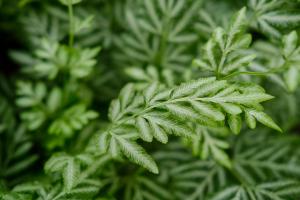Can You Use Swimming Pool Water to Water Plants?
Swimming pools are a great way to enjoy outdoor activities during the summer months. However, when the season ends, most pool owners are left with the question of what to do with the water. Many people may consider using their pool water to water their plants as a cost-saving measure. But is it safe to use swimming pool water to water your plants? Let's find out.
The Composition of Swimming Pool Water
The water in a swimming pool is treated with different chemicals, including chlorine, to kill bacteria and algae. These chemicals can have a negative impact on the growth and development of plants, especially if used excessively or for extended periods. In addition, pool water can also contain debris, dirt, and other contaminants that can harm your plants.
The Effect of Chemicals on Plants
Chlorine is a powerful chemical that can damage plants' leaves, stems, roots, and other parts of the plant. It can also change the pH of the soil, making it difficult for plants to absorb nutrients. In addition, the chemicals used to balance the pH of the pool water can affect the plants' growth and development. The effects of these chemicals on plants will depend on the frequency of use, the amount of water used, and the type of plants.
Factors to Consider When Using Pool Water to Water Plants
There are several factors to consider when using pool water to water your plants. Firstly, the pH of the pool water should be tested before using it on plants. If the pH is too high, it can damage plants by preventing nutrient absorption. Secondly, the frequency of use should be limited to avoid damaging the plants. It is advisable to use pool water once a month or less frequently. Finally, the type of plants being watered should also be considered. Some plants are more sensitive to chemicals and should not be watered with pool water.
Safe Alternatives to Pool Water
If you are hesitant about using pool water to water your plants, there are safe alternatives that you can use. Rainwater is a great option as it is free of chemicals and contains a balanced pH that can benefit plants. Another option is tap water that has been allowed to stand for 24 hours as the chlorine will evaporate, making it safe for plants. Alternatively, you can also use a water filtration system to remove chlorine and other impurities from the pool water, making it safe for plants.
Conclusion
Using pool water to water your plants can be tempting as it is a cost-saving measure. However, the negative effects of chlorine and other chemicals on plants cannot be ignored. If you choose to use pool water, it is important to test the pH level, limit the frequency of use, and consider the type of plants. Alternatively, safe options like rainwater, tap water, or a filtration system can be used to ensure the health and growth of your plants.

 how many times do yo...
how many times do yo... how many planted tre...
how many planted tre... how many pine trees ...
how many pine trees ... how many pecan trees...
how many pecan trees... how many plants comp...
how many plants comp... how many plants can ...
how many plants can ... how many plants and ...
how many plants and ... how many pepper plan...
how many pepper plan...
































